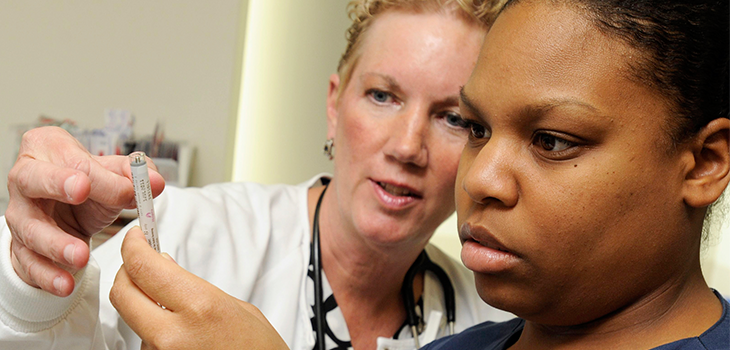Four Academic Learning Communities to Convene in 2018-19

Five Academic Learning Communities (ALCs) will convene in 2018-19. ALCs are seminars that provide opportunities for faculty to discuss topics related to their research, teaching, and intellectual lives. These seminars meet 4 to 6 times a semester for 1.5 hours and include common readings that are posted on Canvas.
Fall 2018
Assessment in Action: Strategies to Improve Teaching and Student Learning
Convened by: Ulemu Luhanga, Jennifer Heemstra, and David Jordan
For the purposes of this ALC, assessment (of student learning) is defined as “the systematic collection of information about student learning, using the time, knowledge, expertise, and resources available, in order to inform decisions about how to improve learning” (Walvoord, 2004, p. 2) The objectives of the ALC are 1) to develop educators’ pedagogical content knowledge around assessment;) to debate controversies around assessment in higher education; and 3) to share best practices for assessment across Emory programs and schools.
Spring 2019
Mass Incarceration in the American South
Convened by: Jennifer Sarrett
For this ALC, we will come together to discuss a wide range of contemporary issues relating to mass incarceration and explore these issues in the context of the American South. We will place the unique concerns of the modern carceral system into conversation with the South’s distinct cultural profile, including the area’s high rates of incarceration, historical and current race relations, distinct public heath profile, gender norms, religious diversity, and socio-economic disparities.
Creating Synergy Across Departments in Teaching Scientific Research
Convened by: Megan Cole
Objectives are:
- Presentation of lab course formats/syllabi;
- Identify shared and distinct learning objectives in intro-level labs across Departments:
- For shared learning objectives identified in meeting 1 discuss each in more depth to clarify language/concepts we use in teaching each to either unify or explicitly distinguish them across departments. Share materials used in teaching these concepts to better align teaching materials across departments and to minimize discipline-specific jargon that hinders students’ ability to see universality of concepts;
- For shared learning objectives brainstorm ways that lab courses could synergistically teach these concepts taking into account that students take our courses in different sequence/combinations. For example, how can we engage and elevate learning in each course for students regardless of the number of previous introductory-level STEM lab courses taken;
- Create clear list of ‘core’ STEM research learning objectives that we recommend be taught in lab courses aimed at non- science majors completing GER requirements;
- Brainstorm future of teaching labs at Emory as science continues to progress in increasingly interdisciplinary ways. Explore ideas such as an interdisciplinary research methods course taken by all STEM students, utilizing research skills badges to indicate student competencies in shared objectives, development of discipline-independent labs aimed at specific courses, initiating annual meetings with STEM teaching lab faculty to continue synergy in teaching across departments
Yearlong: Fall 2018 and Spring 2019
Theorizing Global Health
Convened by: Sydney Spangler & Kylie Smith
As a field of knowledge and purposive social action, global health forms a core part of Emory’s work and identity. Students are offered a number of global health learning opportunities across a range of venues at the University, and faculty pursue a spectrum of diverse research and teaching interests in this area. It is the case, however, that many of these “global health experiences” lack a critical framework and remain undertheorized. Students themselves often question the ethics and efficacy of their experiences, and faculty are sometimes left without the tools and techniques to facilitate more meaningful engagement. Application of critical social theory to global health (concept, field, and action) can help to define terms, interpret meanings, and expose assumptions – providing a lens by which we can better understand socially constructed processes that have real-world, often inequitable consequences.
Inclusion at Emory: How to Change our Structures, Practices and Expectations through Innovation (Emory College of Arts and Sciences only)
Conveners: David Lynn, Asa Griggs Candler Professor of Chemistry and Biology; Leslie Taylor, Professor of Theater Studies; Kim Loudermilk, Senior Lecturer in the Institute for the Liberal Arts
Funded by the Howard Hughes Medical Institute, this ALC invites faculty from the natural sciences, social sciences, arts and humanities in Emory College of Arts and Sciences to think across disciplinary lines to address two questions: (1) Building on work already underway at Emory, how do we expand the ways institutions such as Emory think about inclusion? (2) How do we change university culture such that inclusion is embedded in our University’s structure and practice?
In addition to a focus on those underrepresented in the academy because of race and ethnicity, we also want to think about the inclusion of those who have diverse life experiences and who work in fields across the academic landscape. We further want to build greater vertical connections across the undergraduate, graduate, faculty, and staff continuum. Bridging the barriers across disciplines, in a horizontal sense, has taught us that interdisciplinary entrepreneurship and innovation removes critical barriers to achieving this broader inclusive excellence.